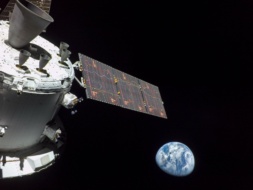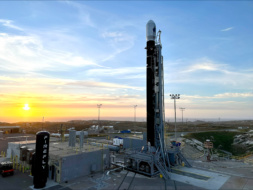UC Berkeley has proposed construction of a new $2B facility to boost innovation in space technologies, including astronautics, quantum computing, and climate science initiatives.
The university and real-estate developer SKS Partners are eyeing a 36-acre plot at NASA Ames in Silicon Valley for the new complex, dubbed the Berkeley Space Center. The center would play host to lab space, offices, classrooms—you name it—with the goal of strengthening the relationship between academia, the commercial space sector, and government partners.
California governor Gavin Newsom has endorsed the project in hopes of cementing the Golden State as the heart of the US aerospace landscape.
“California’s innovation and drive is not limited to Earth,” Newsom said in a release. “Berkeley Space Center will help lead the state’s space tech development by bringing together top space leaders in academia, government, and industry to foster new technologies and breakthroughs.”
The space center: Building the future of aerospace takes a whole lot of resources here on the ground. Berkeley’s proposed design includes 1.4M sq ft of space for offices and wet and dry labs. It also includes 18 acres of outdoor space, and later on, could include housing for faculty and visitors.
- The location on the NASA Ames complex is intended to foster further collaboration between the university’s students and faculty and the US space agency.
UC Berkeley reports that it has already dedicated $1M to the project in payments to the faculty designing the complex alone. It expects to begin pulling in ~$40M per year upon completion of the center through grants, research funding, fees, and income earned as a proportion of the real estate revenues the facility generates. Ultimately, the center’s operations are intended to pay for themselves.
What’s next? UC Berkeley has begun the process of securing environmental entitlement for the complex, which will take ~two years. The partners are hoping to break ground by 2026.




